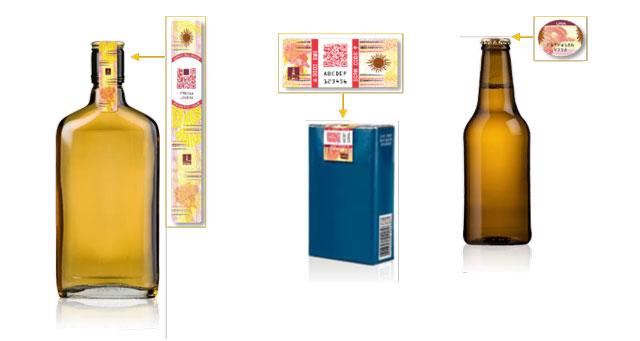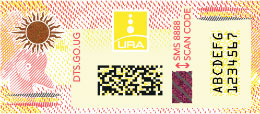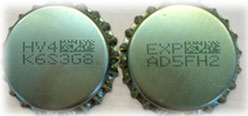
Kampala, Uganda | THE INDEPENDENT | Harris International (Riham) and Leaf Tobacco and Commodities have set the pace by being the manufacturers to commence stamping of their products using the newly introduced Digital Tax Stamps (DTS).
Uganda on Friday started implementing a Digital Tracking Solution (DTS) for excise duty through the implementation of modern tax stamps.
“Government has introduced the use of digital tax stamp and the Minister of Finance, Planning and Economic Development has gazetted Beer, Spirits, Wine, Soda, Mineral water and Tobacco products, both locally manufactured and imported, to be affixed with digital tax stamps,” Commissioner General of Uganda Revenue Authority (URA) Doris Akol said in a statement.
Manufacturers have been given a three months grace period, up to January 31,2020 to finish up all stock in the distribution chain that does not have digital tax stamps.
In the same grace period , installation of stamp-affixing technology will take place in the manufacturers’ and importers’ production lines. For locally manufactured goods, affixation shall be done in the production facility immediately after packaging of the product.
Harris International (Riham) and Leaf Tobacco and Commodities have been the first to install DTS equipment in Uganda.
Hariss International Limited is one of Uganda’s leading manufacturers of food and beverages. Since its inception in 2005 they have been operating under the brand name RIHAM.
RIHAM has grown into a well-known household brand over the years and currently operates a broad product portfolio comprising of Carbonated Soft Drinks, Natural Mineral Water, Juices, Malt and Energy Drinks, Premium and other biscuits. Hariss International Limited was founded in Uganda, and was built on principles and foundations laid by its founders Yasser. K. Ahmad, Chadi. K. Ahmad, and Izzat. K. Ahmad.
Examples of the digital stamps
| Product | Type of Digital Tax Stamp |
| Locally manufactured and imported Tobacco products (including cigarettes) |  |
| Locally manufactured and imported Wines, Spirits and beer kegs |  |
| Imported beer, soda and mineral water |  |
| Locally manufactured beer, soda and mineral water |  |
What’s changed?
The DTS is a significant upgrade to the old, manual tax stamps used previously only on cigarettes only. The purpose, according to URA, of implementing the DTS is to improve the management of Excise Duty.
Traditionally, URA has administered Excise Duty by attaching staff to each factory to physically monitor the volume of production. In 2002, URA introduced the use of tax stamps as an additional measure to monitor production and importation. However, these tax stamps were manual in nature and applicable to cigarettes only.
Performance of excise duty has persistently remained below expectation due to inefficiency in monitoring of the products. “This has resulted in loss of government revenue, increase in illicit trade and unfair competition to the legitimate investors, manufacturers or importers. As a way of eliminating the inefficiencies, technology options have been sought to aid tax administration in mitigating these revenue losses by adopting use digital trace-ability solutions that guarantee security and authentication of the tax stamp,” Akol stated.
URA reported recently that Uganda’s soda and bottled water sector currently consists of 256 manufacturers, of which only 46 are on the tax register.
According to the Uganda Manufacturers Association, the soda and bottled water sector currently produces 231,379,200,000 bottles per annum. At a unit price of Shs 625 per bottle , the sectors are expected to have remitted Shs 14.4 trillion in tax per annum.
Only Shs 105 Bn was remitted in FY 2016/17 while Shs 135 Bn was remitted in FY 2017/18
Excise Duty is a tax imposed on specific goods or services produced, imported or provided within a country. The duty is computed as a percentage or specific rate on the sale, import or provision of goods or services. Excise Duty may be imposed to discourage consumption of specific goods, for public safety, environmental protection and to raise government revenue. It is charged when the goods exit the factory or when they are imported into the country.
 The Independent Uganda: You get the Truth we Pay the Price
The Independent Uganda: You get the Truth we Pay the Price



Uganda’s National Drug Authority and National Medical Stores could borrow-a-leaf and require all medicines (both imported and locally manufactured) have similar digital stamps to have much more control of the medicine supply chain this could help minimise counterfeits and theft.